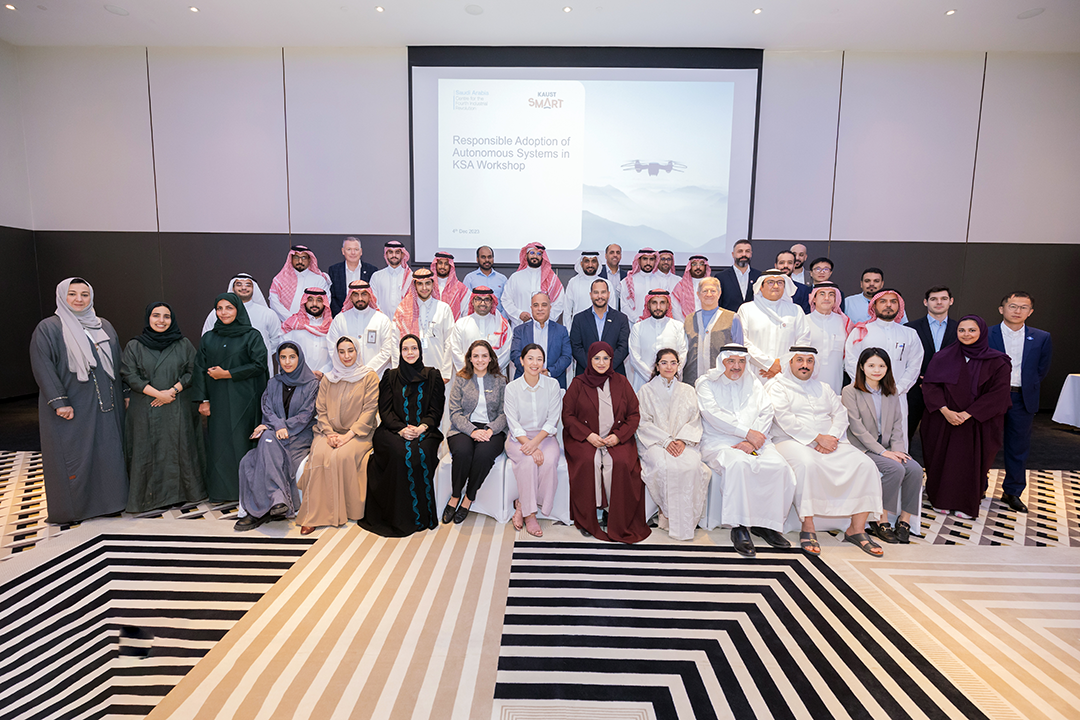KAUST hosts experts on autonomous transport policies

Participants of the workshop
The Fourth Industrial Revolution Centre, affiliated with the World Economic Forum (WEF), in collaboration with KAUST, conducted a workshop today at the University on the responsible adoption of autonomous systems in Saudi Arabia.
The workshop aimed to harmonize policies and regulations related to autonomous transport systems in Saudi Arabia. Experts and researchers from universities and representatives from government and private entities participated.
Dr. Basma bint Saleh Al-Buhairan, the managing director of the Fourth Industrial Revolution Centre in the Kingdom, highlighted the center's role in adopting emerging technologies. She emphasized the collaboration between public and private sectors, academic communities, and civil society for the creation, design, and testing of new methods for adopting Fourth Industrial Revolution technologies. Additionally, the center focuses on developing national talent related to the Fourth Industrial Revolution.
Dr. Al-Buhairan underscored the importance of partners such as KAUST, the Ministry of Transport and Logistics Services, the General Authority for Transport, and the General Authority of Civil Aviation. These participants in the workshop are working together to harness autonomous systems and pave the way for the safe and responsible adoption of such technologies, which have the potential to enhance safety and efficiency in the transportation sector.
The workshop's goal was to coordinate efforts between government departments and the private sector to develop comprehensive regulations that facilitate the use of autonomous systems and the Internet of Things, as well as the application of artificial intelligence in transportation. It also aimed to contribute to the ongoing efforts of experimental autonomous systems in the Kingdom, supporting stakeholders in the transportation sector to achieve national strategic goals for transportation and logistics services within the "Future of Transportation" initiative, which seeks to enhance safety and efficiency in transportation.
Participants in the workshop discussed how to disseminate information related to testing initiatives in the Kingdom, identify regulatory opportunities, and prioritize usage scenarios.
They also engaged in three main sessions focusing on autonomous transport systems. The first session explored the experimental testing of autonomous systems, understanding regulatory challenges and opportunities, and identifying intersections between technology and policies. The second session emphasized aligning experimental goals with global readiness standards, discussing guidelines and experimental procedures, and promoting safe experiments. The final session focused on charting a course to form a community of diverse stakeholders inspired by global initiatives. The overall aim of the event was to align strategic vision and goals that reflect the Kingdom's transportation objectives.

